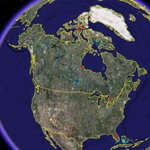
Science blogger and University of Wisconsin scientist John Hawks recently demonstrated that it really is possible to blog and get tenure.
Continuing this discussion, he now explains why scientists should take the time to blog. It will help you make an impact on the culture at large:
You might give media interviews, public lectures, or write more accessible treatments of your research or your field. You might even blog. By serving the public and your own colleagues, you raise the game. Science depends on criticism, on many eyes examining hypotheses and finding observations that test them.…
